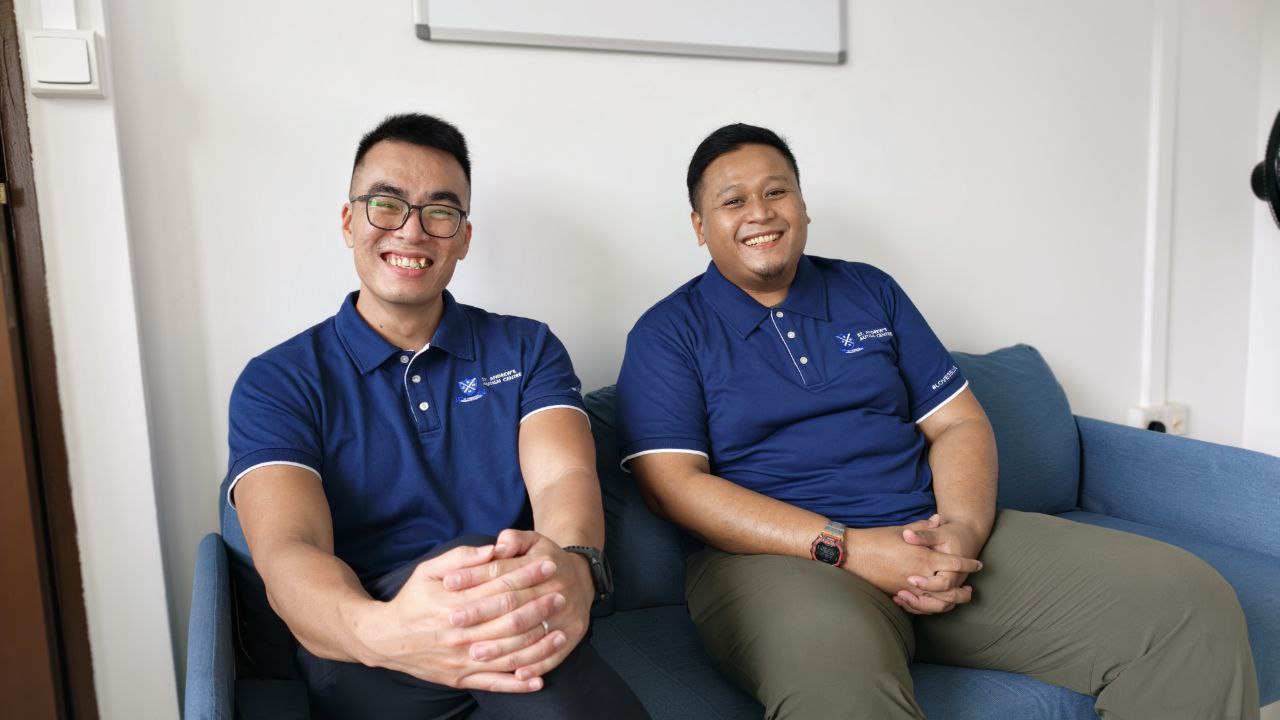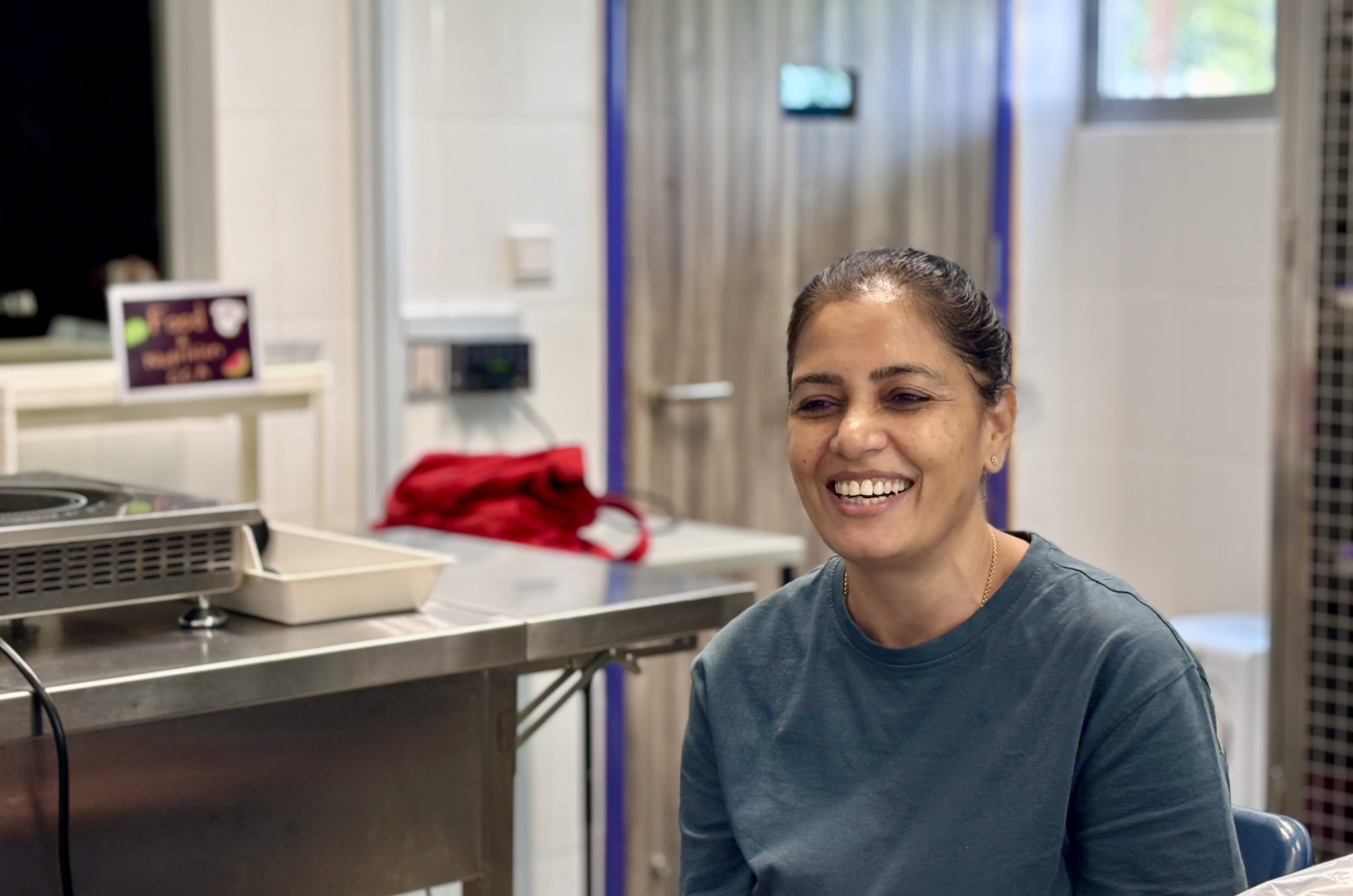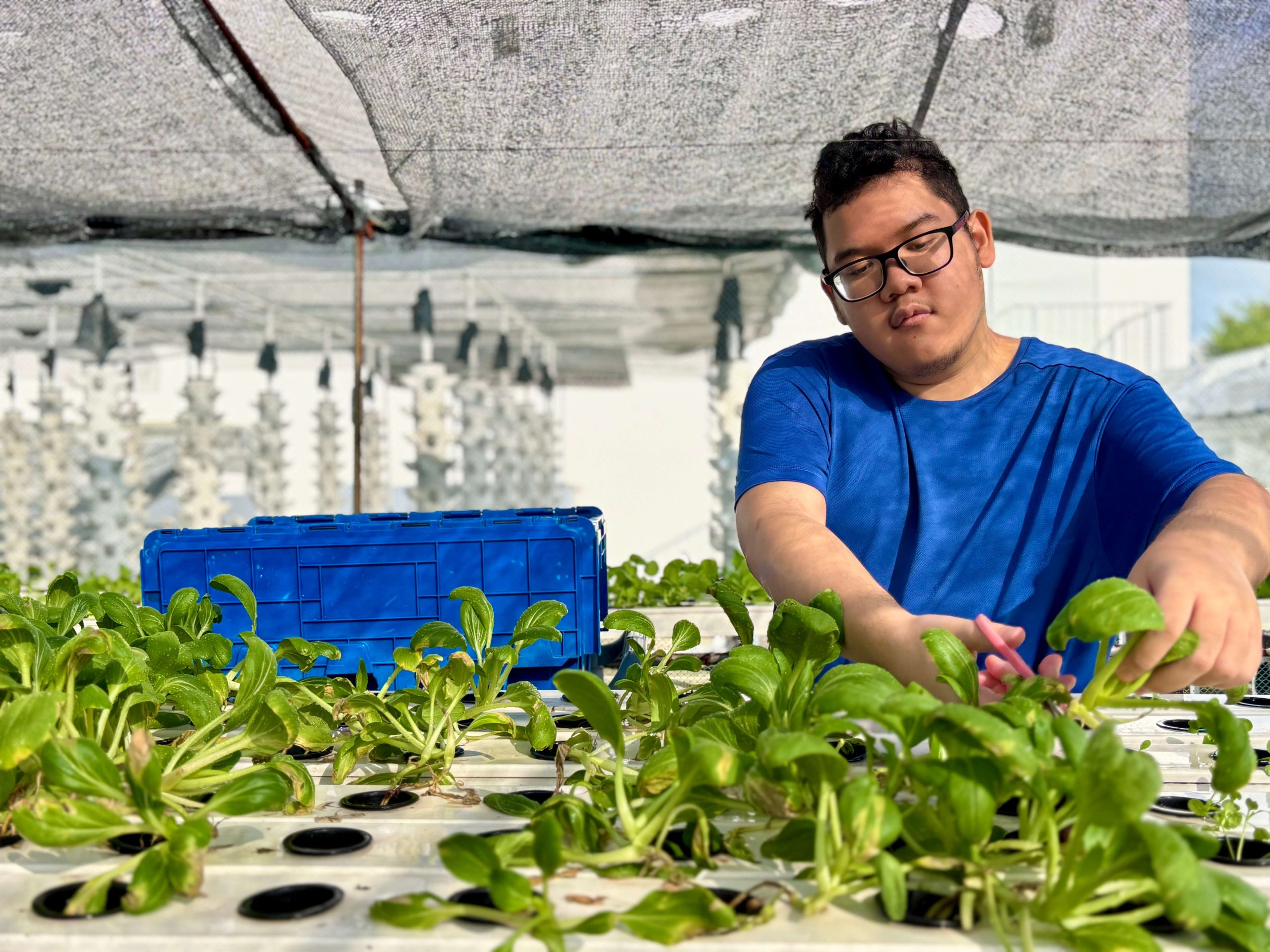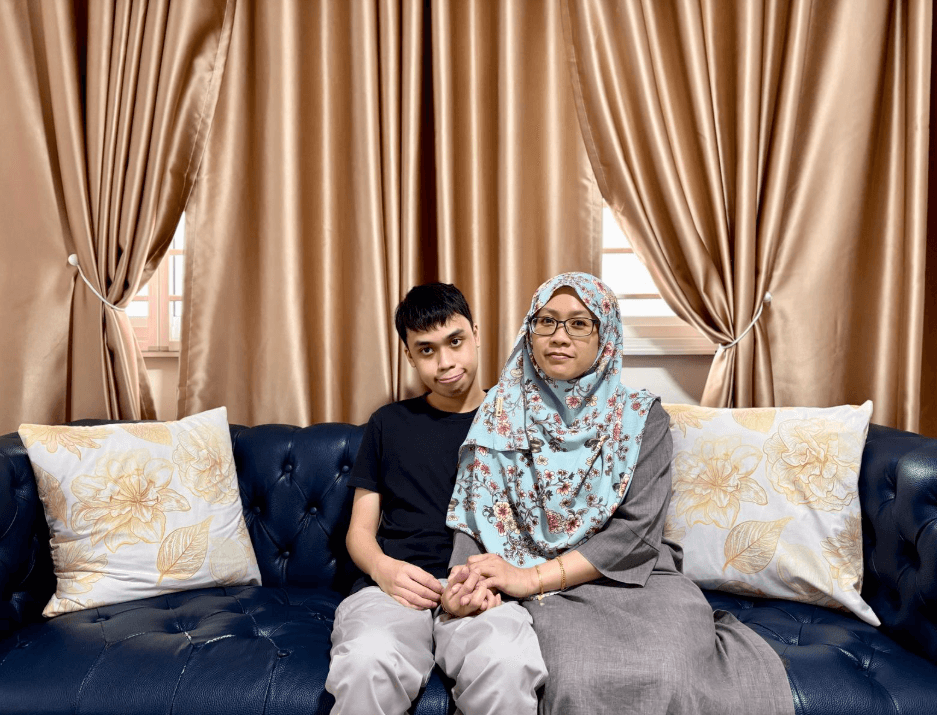Ask any teacher or coach at St. Andrew’s Autism Centre (SAAC), and they’ll tell you that no two days are ever alike. With each day comes fresh lessons to discover and learn – both about and from our students at St. Andrew’s Autism School (SAAS) and our adult clients at our Day Activity Centres (DACs), who live with moderate to severe autism.
Unlike mainstream schools, the educational journey at SAAS spans 12 years, from age 7 to 18. Teachers walk alongside students throughout this time, witnessing their growth from childhood to adolescence, and eventually guiding them through graduation into life beyond school.
For adults with moderate to severe autism, those who have the opportunity continue their journey after school at DACs, where they are guided by coaches. DACs are spaces where adults with special needs can learn daily living and community skills, build independence and take part in meaningful social and recreational activities. There is no graduation or fixed “end date” at a DAC, and adult clients journey with us for as long as they need, until it is time for their next transition of care plans.
The thought behind the education
When it comes to special education, the demands are multiplied tenfold. The nature and severity of autism, coupled with the range of disabilities and comorbid conditions that our students and clients may have, makes learning a lot more layered and challenging.
Behind every moment of progress is immense thought, planning and compassion.
“Our teachers and coaches must first decide what to teach – always asking what is functional, what is generalisable, and what will truly add to their quality of life, not just during school or DAC years, but for an entire lifespan,” shared Bernard, CEO of SAAC.
The reality is that the overwhelming majority of our students and clients will not get to walk the “traditional pathways” of life. Instead of preparing them for examinations or their next academic pursuit, our teachers and coaches have to prepare them for something far greater – life itself.
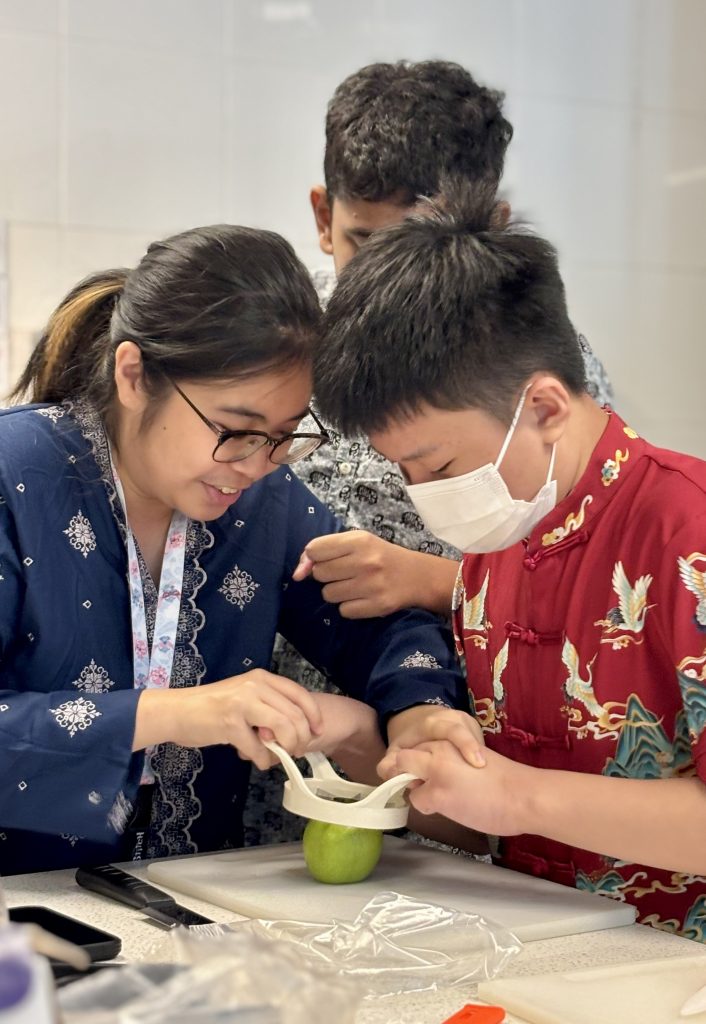
Planning for something far greater
One way this comes to life is through the work of the Transition Planning team, who organise community visits for students, especially as they near the end of their school journey. These trips help students become familiar with their estate, local surroundings and the people in their community. But it’s not just about the students; the visits also help the community become familiar with them.
“When we are out for a community outing, I think the public at large probably assumes it’s just a fun outing. But there’s more to that than meets the eye.” shared Eddy, a teacher at SAAS who is part of the transition planning team. “There’s a lot of considerations beneath the surface – we embed a lot of objectives that we want to teach the students. It is more than just a fun outing.”
Teacher Eddy shared a memory from one of their hawker visits. In the beginning, the teachers would step in to guide the students as they ordered their food. But after a few visits, the stall owners start to recognise the students and will help them directly, without the teachers needing to intervene.
He reflected, “Students will eventually graduate. Their parents will one day no longer be around. But the community will always remain. Whether it’s the barber, the receptionist at the clinic, or the hawker stall owner, they are the ones who will continue to support our students.”
Through constant guidance, special educators help to build skills that will give our beneficiaries the independence to navigate their daily life and future, and most importantly, create opportunities for them where they can be seen and valued for who they are. They make it possible for our students and clients to not merely exist in the community, but to live fully as part of it.
Above all, they make it possible for each and every one of our students and clients to still experience what life has to offer, regardless of the severity of their challenges; a life of dignity, joy and choice.
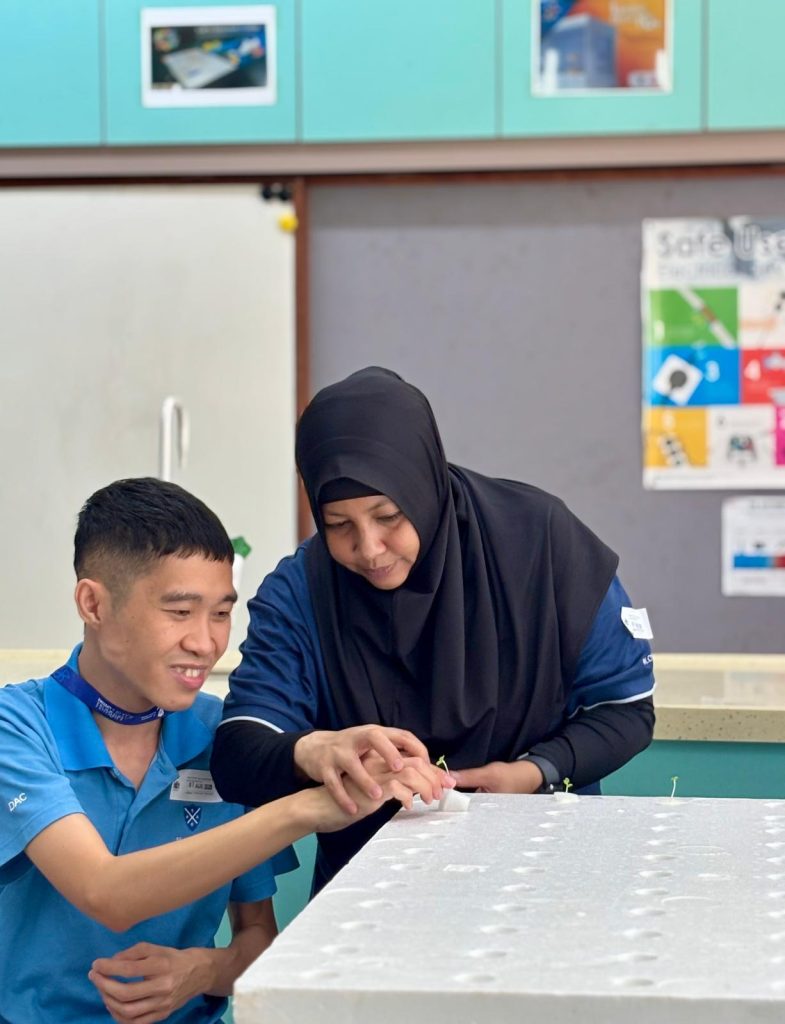
A balancing act
Beyond this, special educators also have to be knowledgeable about autism and other conditions faced by the beneficiaries. They have to figure out when and how to make the necessary accommodations that can better support each and every beneficiary’s needs.
To this end, the special educators at SAAC develop education and care plans that are painstakingly individualised. They invest time and heart to build trust and know each beneficiary to their core – their strengths, their struggles, their likes, their dislikes, and even the families who walk this journey with them. This also means knowing when to push, when to pause and when to simply embrace – a delicate balance that few can master, and one that makes the work of teachers and coaches in special education so profound.
All this, to ensure that each person with autism is given the love and dignity they deserve.
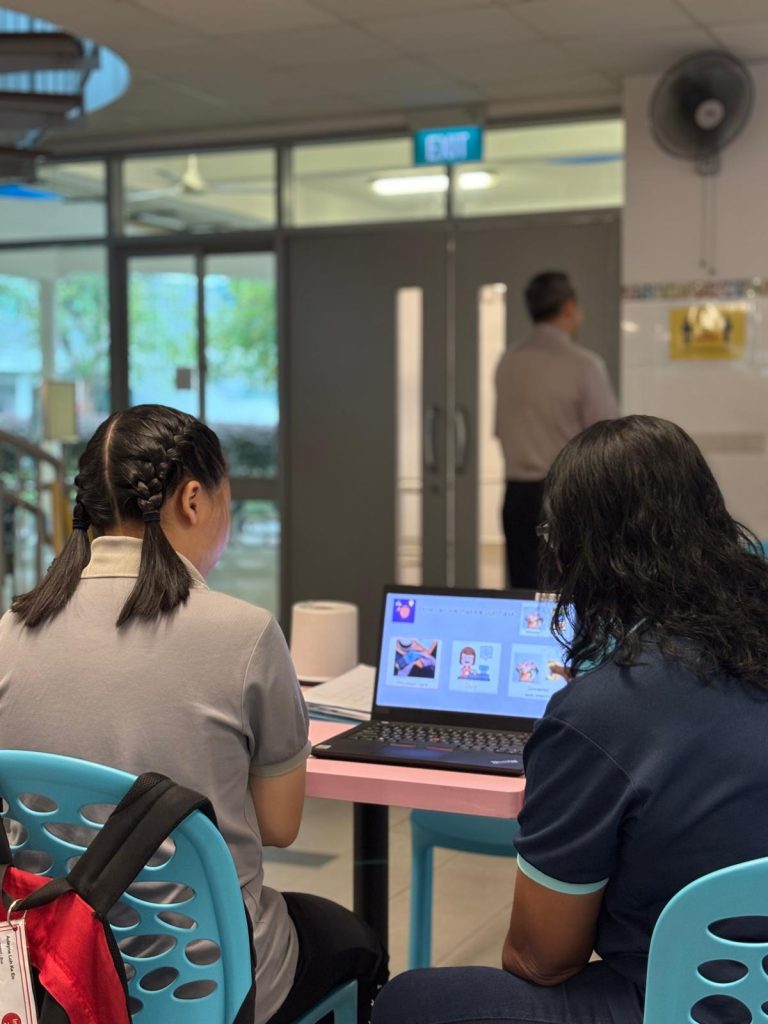
Seeing the possibilities
Persons with autism thrive on routine, structure and predictability, and our special educators do their utmost best to provide this sense of stability for our beneficiaries. Ironically, their very own role is often the opposite of routine – calling for adaptability, resilience, and a readiness to face whatever challenges may arise each day.
To be in this line of work also means to remain deeply present and to trust the unknown.
Much of the work our special educators do cannot be measured by conventional means. The results and impact of their efforts are almost never immediate and may not be expressed outrightly by our beneficiaries, many of whom are non-speaking. It might even feel repetitive at times, but regardless, they are in it for the long haul and return to work each day ready to honour the hard-earned inchstones.
“We may not always see goals being achieved everyday. Very often, it is non-linear. It can be slow, and even hard to see. But we always try to appreciate all their small progress, because we know it will mean so much more to them,” said Dinah, now a full-time coach at our DAC, after first beginning her journey here as an intern.
...We always try to appreciate all their small progress, because we know it will mean so much more to them.
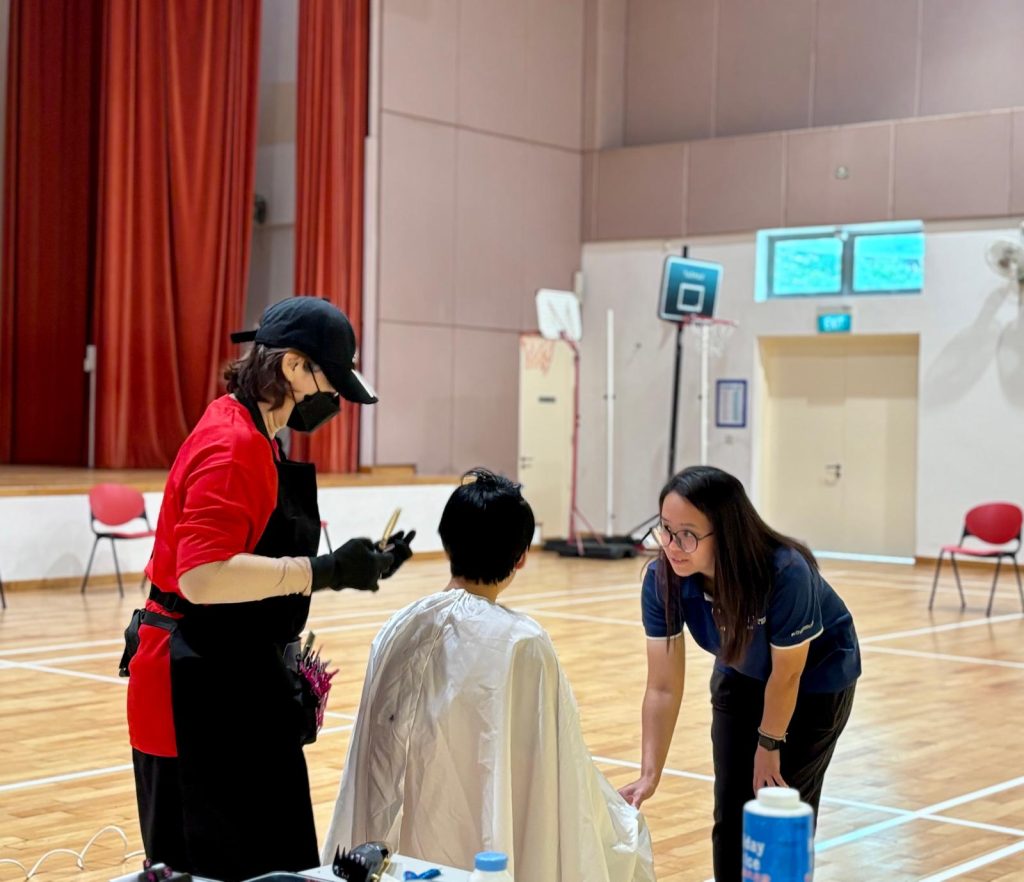
Unconditional love above all
To be a special educator takes tremendous skill and above all, love without conditions. It takes something truly special to tenderly hold both skill and heart together; learning how to embrace our beneficiaries’ disability, while at the same time ensuring it does not become a barrier to their growth or to experiencing life meaningfully.
What is required of our special educators is often multifaceted, deeply layered and beautifully complex. They see our beneficiaries not for their behaviours or what society may assume of them, but as individuals fully deserving of love and dignity, exactly as they are.
This line of service calls you to tap into the deepest parts of your humanity. It can get messy, emotional and at times, a test of self.
But ask any SAAC special educator, and they will tell you how much their experience has shaped their being, worldview and expansion as a person. Though they take on the formal role of teaching, they are more often than not on the receiving end of life lessons – ones that can only be taught by their students and clients that they journey with.
To our SAAC teachers and coaches,
Thank you for showing up each day with so much love. Your unwavering grit, compassion and empathy is extraordinary. We appreciate you for who you are, and for all you bring into the lives of those you serve. Happy Coaches’ and Teachers’ Day!
If you’d like to support persons with autism and their education, you can do so by:
Volunteering with SAAC
You can give the gift of your talents and time by volunteering. We welcome those with a heart to serve.
Donating to our programmes
Help us provide persons with autism with highly structured programmes and give respite to their caregivers.
Advocating for Autism
Those on the autism spectrum are often misunderstood and excluded from the public eye. Mention us to friends & family.

